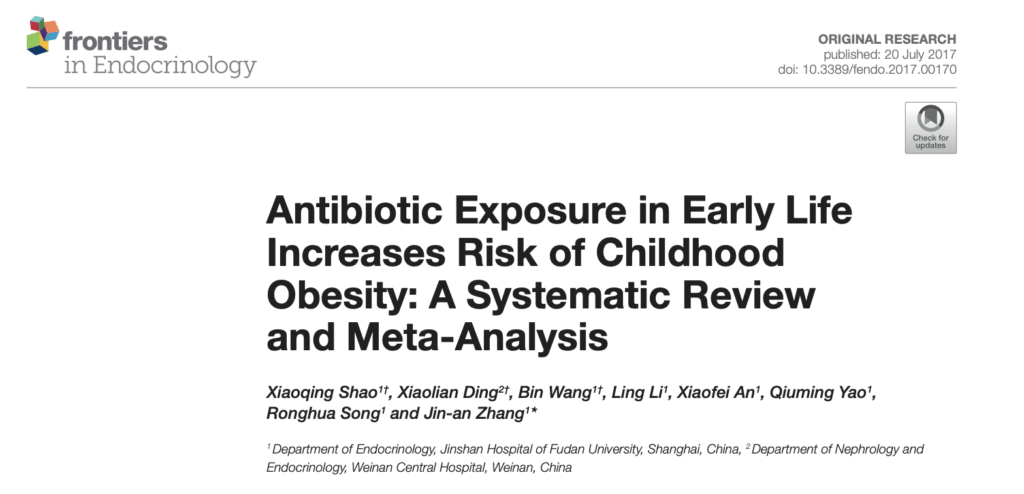If you are a parent, you’ve probably faced the dilemma: your toddler has a fever, and the doctor prescribes antibiotics-should you worry about long-term effects? Recent research suggests that antibiotics given in the first two years of life may be linked to a higher risk of childhood obesity. Let us break down the evidence, the possible reasons, and what you can do as a parent.
The Evidence: What Do Studies Show?
Large-Scale Studies and Key Findings
- A major Finnish study followed over 33,000 children and found that those who received antibiotics before age 2 had a higher body mass index (BMI) at ages 2 and 12. Specifically, these children had a 0.067 higher BMI z-score, were 9% more likely to be overweight, and 20% more likely to be obese by age 12 compared to those who had not received antibiotics early in life.
- This association was not found with antibiotic use during pregnancy, before pregnancy, or at birth-timing matters.
- The risk appears to increase with the number of antibiotic courses: each additional course in early life slightly raises the risk of overweight and obesity.
Meta-Analyses and Broader Reviews
- A meta-analysis of 15 cohort studies (with over 445,000 children) confirmed that early-life antibiotic exposure independently increases the risk of both overweight and obesity. The risk goes up with more frequent exposures.
- Another review found that the earlier the first antibiotic, mainly before 24 months, the greater the risk of overweight and obesity by age
Why Might Antibiotics Raise Obesity Risk?
Gut Microbiota Disruption
- Early childhood is a critical time for developing gut bacteria, which play a significant role in metabolism and weight regulation.
- Antibiotics can disrupt the balance of beneficial gut microbes, changing how the body processes food and stores fat.
- Animal studies support this: mice given antibiotics early in life gain more fat and have altered gut bacteria.
Other Contributing Factors
- Children who receive more antibiotics may also live in environments with higher obesity risk (diet, lifestyle, genetics), making it hard to prove causation3.
- Some studies suggest a dose-response effect: more courses of antibiotics mean higher risk.
Real-Life Example: A Parent’s Perspective
Imagine your 18-month-old has had several ear infections and has been prescribed antibiotics each time. According to the research, each course may slightly increase their risk of being overweight or obese later in childhood. While antibiotics are sometimes necessary, this evidence suggests it’s worth discussing with your doctor whether antibiotics are truly needed, especially for mild infections.
What Should Parents and Doctors Do?
Be Cautious with Prescriptions
- Most experts agree antibiotics should be used when clearly needed, especially in young children.
- Many childhood infections- like most colds and some ear infections- are viral and won’t improve with antibiotics.
Ask Questions
- If your child’s doctor suggests antibiotics, ask:
- Is this infection definitely bacterial?
- Are there other treatment options?
- What are the risks of waiting or using alternative therapies?
Support Gut Health
- While more research is needed, some studies suggest that probiotics might help restore healthy gut bacteria after antibiotics, though this is not yet a standard recommendation.
The Bottom Line
- Early antibiotic exposure (before age 2) is linked to a modest but genuine increase in childhood obesity risk.
- The risk increases with more courses and with earlier exposure.
- Antibiotics remain essential when truly needed, but avoiding unnecessary prescriptions- especially for viral infections-can help reduce this risk.
Actionable Steps for Parents
- Discuss the necessity of antibiotics with your pediatrician for each illness.
- Focus on healthy eating and active lifestyles to counteract any potential risk.
- Stay informed about new research on antibiotics and child health.
In summary, While antibiotics save lives, using them wisely in the toddler years may help protect your child from future weight problems. Always consult your healthcare provider for the best course of action for your child’s health.
Reference: Shao X, Ding X, Wang B, Li L, An X, Yao Q, Song R, Zhang JA. Antibiotic Exposure in Early Life Increases Risk of Childhood Obesity: A Systematic Review and Meta-Analysis. Front Endocrinol (Lausanne). 2017 Jul 20;8:170. doi: 10.3389/fendo.2017.00170. PMID: 28775712; PMCID: PMC5517403.


